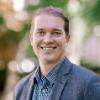Freedom within Constraints: The Flourishing of Disagreement in Religious Universities
 Timothy Taylor, Ph.D., Associate Professor of Politics and International Relations and 2024 CACE faculty seminar facilitator
Timothy Taylor, Ph.D., Associate Professor of Politics and International Relations and 2024 CACE faculty seminar facilitator
A response to the CACE 2024 faculty seminar.
Concerned with the moral instruction of youth and the development of character, Martin Luther King Jr. called attention to the dangers of removing moral formation while solely instructing practical knowledge in the university. “Education which stops with efficiency may prove the greatest menace to society. The most dangerous criminal may be the man gifted with reason, but with no morals.”[1] Fortunately for King, it is not possible to fully remove moral formation from education no matter how loudly ivory towers espouse academic freedom. Indeed, our greatest curricular disagreements are not in the practical sequencing of math courses, but in what values we are instilling in children. One need only briefly survey the town hall meetings which nearly come to blows over the historical narratives we teach or which social inequalities to emphasize.
We are moral creatures; we employ education as a moral tool. However, the principles of liberalism and academic freedom necessarily obfuscate the moral certitudes enshrined in a university. Nonetheless, moral boundaries are prevalent as even the most ironclad statement on academic freedom may not protect the tenure of a professor who steps fully, and without remorse, beyond the pale. But what exactly is the moral boundary in such institutions? How does one know when they are approaching the horizon? What values are primary as opposed to secondary commitments to a given institutions?
Institutions which make explicit and exact their moral commitments remove doubt and ambiguity by clearly marking boundaries. I have found working in such an institution provides a sense of freedom toward civil discourse because the limits on my academic freedom are clear. I know, and I must acknowledge annually with the signing of my contract, the faith commitments of the university which in turn grants me freedom to research, teach, and even foster disagreement within the boundaries. It is not only me, but I observe students are similarly unfettered by the clear commitments of their university. I believe the paradox of institutional limits and personal freedom promote expressive disagreement in a twofold manner.
First, is what could be thought of as a revealed map. Rather than cautiously probing in unexplored territory wary of pitfalls and quagmires, the student who is provided a map now walks a path illuminated and can boldly progress while avoiding the known obstacles. Pitfalls still exist in the university with explicitly moral commitments, but these are revealed, known, and may be avoided so the teacher and scholar may work uninhibited. Second, is the solution to identity. In a world in which moral commitments are intractably moored to personhood and identity, many of us are cautious to express disagreement because of the uncertainty of whether the disagreement has threatened another’s core identity and personhood. Identities are still challenged, but the university with clear commitments has illuminated which moral issues are primary and core to identities. Disagreements may be expressed therefore with hopeful confidence that a primary identity was not challenged because mutually agreed shared primary commitments.
[1] King, Martin Luther Jr. “The Purpose of Education,” Maroon Tiger (January-February 1947)
